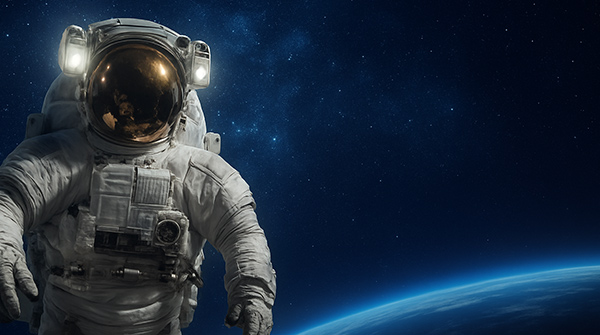Space travel is no longer just science fiction. As astronauts spend more time beyond Earth, researchers are uncovering how space travel is changing human biology in surprising ways. From the impact of microgravity to radiation exposure, living in space is reshaping our understanding of the human body.
The Effects of Microgravity on Muscles and Bones
One of the most well-documented changes in human biology during space travel is the loss of muscle and bone density. In microgravity, the body does not need to support its own weight. As a result, muscles weaken and bones lose calcium, leading to a condition similar to osteoporosis. NASA notes that astronauts can lose up to 1% of bone mass per month in space (NASA). This poses a significant challenge for long-term missions, such as traveling to Mars.
The Cardiovascular System in Space
The cardiovascular system also undergoes dramatic changes during space missions. Without gravity, blood and fluids shift toward the head, causing facial puffiness and pressure inside the skull. Over time, astronauts may experience vision problems and changes in heart function. Researchers at the European Space Agency are studying how these changes could impact long-term health.
DNA and Cellular Changes
Perhaps one of the most fascinating findings is how space travel is affecting human DNA. Studies, including NASA’s Twins Study, revealed that long-term space travel can cause alterations in gene expression, shifts in the immune system, and even changes in telomere length (the protective caps of chromosomes). While many of these changes return to normal after returning to Earth, some may have lasting effects.
The Role of Radiation
Outside Earth’s protective atmosphere, astronauts are exposed to higher levels of cosmic radiation. This can damage DNA, increase the risk of cancer, and accelerate aging. Shielding technology and protective habitats are being developed to minimize radiation risks on future missions.
Mental Health and Circadian Rhythms
Space travel doesn’t just change biology at the cellular level—it also affects the mind. Disrupted sleep cycles, isolation, and the stress of confined environments can impact mental health. Astronauts on the International Space Station (ISS) follow structured schedules, including exercise and relaxation routines, to reduce these effects.
What This Means for the Future
Understanding how space travel is changing human biology is crucial for preparing for future exploration. From developing countermeasures like resistance exercise to advanced shielding, scientists are working on solutions to keep astronauts safe and healthy. These discoveries may also lead to medical breakthroughs on Earth, helping us treat conditions like osteoporosis, cardiovascular disease, and immune disorders.
If you want to explore more science and innovation topics, check out our Interesting section on Informarius.
Key Takeaways
- Space travel is changing human biology through muscle and bone loss, DNA shifts, and radiation exposure.
- Mental health and circadian rhythms are significantly affected in space.
- Research on astronauts may improve both space exploration and healthcare on Earth.





